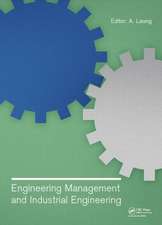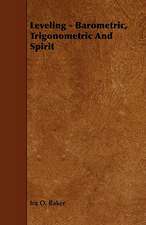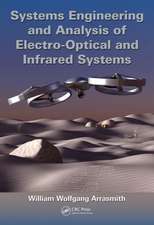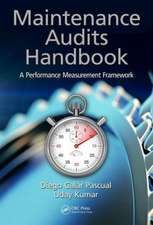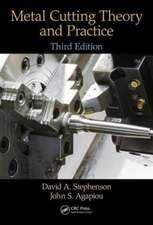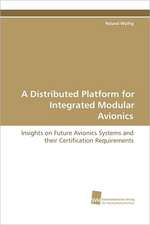Engineering Practice in a Global Context: Understanding the Technical and the Social
Editat de Bill Williams, José Figueiredo, James Trevelyanen Limba Engleză Hardback – 3 sep 2013
The principal focus is on what empirical studies tell us about the social and technical aspects of engineering practice and the mutual interaction between the two.
After a foreword by Gary Lee Downey, the research presented by the various chapter authors is based on empirical data from studies of engineers working in a variety of global settings that include Australia, Ireland, Portugal, South Asia, Switzerland, the UK and the US
The following groups of readers are addressed:
•researchers and students with an interest in engineering practice,
•professional engineers, particularly those interested in research on engineering practice,
•engineering educators,
•people who employ, recruit or work with engineers.
Providing a much clearer picture of engineering practice and its variations than has been available until now, the book is of interest to engineers and those who work with them. At the same time it provides invaluable resource material for educators who are aiming for more authentic learning experiences in their classrooms.
Further information, visit the website Engineering Practice in a Global Context Online: http://epr.ist.utl.pt/EPGC/
Preț: 491.51 lei
Preț vechi: 653.89 lei
-25% Nou
Puncte Express: 737
Preț estimativ în valută:
94.05€ • 98.44$ • 78.28£
94.05€ • 98.44$ • 78.28£
Carte tipărită la comandă
Livrare economică 31 martie-14 aprilie
Preluare comenzi: 021 569.72.76
Specificații
ISBN-13: 9780415636964
ISBN-10: 0415636965
Pagini: 302
Dimensiuni: 174 x 248 x 22 mm
Greutate: 0.77 kg
Ediția:New.
Editura: CRC Press
Colecția CRC Press
ISBN-10: 0415636965
Pagini: 302
Dimensiuni: 174 x 248 x 22 mm
Greutate: 0.77 kg
Ediția:New.
Editura: CRC Press
Colecția CRC Press
Public țintă
ProfessionalCuprins
On the historical nature of engineering practice. Towards a theoretical framework for engineering practice. The practical confrontation of engineers with a new design endeavour: The case of digital humanities. Engineering design teams: Considering the forests and the trees. Working together across disciplines. Engineering problem-solving in social contexts: ‘Collective wisdom’ and ‘ba’. Finding workable solutions: Portuguese engineering experience. Going back to heterogeneous engineering: The case of micro and nanotechnologies. Professional lock-in: Structural engineers, architects and the disconnect between discourse and practice. Observations of South Asian engineering practice. Mathematics in engineering practice: Tacit trumps tangible. Engineers’ professional learning: Through the lens of practice.
Notă biografică
Bill Williams originally trained as a chemist at the National University of Ireland and went on to work in education in Ireland, UK, Eritrea, Kenya, Mozambique and Portugal and to run international distance courses for the International Labour Organization in various African countries.
He is a lecturer at the Barreiro School of Technology of Setubal Polytechnic Institute in Portugal, where he teaches technical communication to civil engineering and construction management undergraduates. He has been an invited lecturer at IST, University of Lisbon and the Technical University of Madrid.
He is an associate member of the Engineering Management and Management Science Research Centre at IST, Lisbon (CEG-IST), has been an active member of the European Working Group on Engineering Education Research of SEFI since its inception in 2009 and is a founder member of the Portuguese Society for Engineering Education (SPEE).
José Figueiredo is a Professor in the Engineering and Management Department of IST – University of Lisbon and a member of the Engineering Management and Management Science Research Centre at IST, Lisbon (CEG-IST). He is an Electronics Engineer with an MBA in Information Management and a PhD in Industrial Engineering. He currently teaches project management and communication skills. His papers in conference proceedings, international journals and international edition book chapters have focused principally on project management and on Actor Network Theory.
In addition to his long-standing involvement with university teaching he also set up two small companies in the information technologies sector. He has been involved in consultancy work with a number of Portuguese and international companies.
Professor James Trevelyan is a Winthrop Professor in the Mechanical and Chemical Engineering School at The University of Western Australia. His main area of research is engineering practice, and he teaches design, sustainability, engineering practice and project management.
He and his students produced the first industrial robot that can be remotely operated via the internet in 1994. The robot has been controlled by a conservatively estimated 500,000 people in dozens of countries.
He was presented with the 1993 Engelberger Science and Technology Award in Tokyo in recognition of his work, and has twice been presented with the Japan Industrial Robot Association award for best papers at ISIR conferences. His teaching has also been well recognised: he was presented with the ASME Award for Mechanical and Mechatronics Teaching at the 2003 AAEE Conference in Melbourne. He has earned four distinguished teaching awards at UWA, and received a further best paper award at the 2004 International Conference on Engineering Education Research conference in the Czech Republic. From 1996 till 2002 he researched landmine clearance methods and his web site is an internationally respected reference point for information on landmines. He was awarded with honorary membership of the Society of Counter Ordnance Technology in 2002 for his efforts, and was also elected a Fellow of the Institution of Engineers Australia.
His recent work on engineering practice aims to understand how engineering work is actually performed, an aspect of engineering that was not previously researched in great depth. This research has helped explain why engineering services in the developed world seem to cost much more than they should, often much more than in industrialised countries, a significant factor inhibiting poverty reduction. Professor Trevelyan is working on education initiatives to enable engineers everywhere to benefit from the insights emerging from this research.
Professor Trevelyan’s web page is: http://www.mech.uwa.edu.au/jpt/ and this has a large amount of supplementary information on his research and teaching.
He is a lecturer at the Barreiro School of Technology of Setubal Polytechnic Institute in Portugal, where he teaches technical communication to civil engineering and construction management undergraduates. He has been an invited lecturer at IST, University of Lisbon and the Technical University of Madrid.
He is an associate member of the Engineering Management and Management Science Research Centre at IST, Lisbon (CEG-IST), has been an active member of the European Working Group on Engineering Education Research of SEFI since its inception in 2009 and is a founder member of the Portuguese Society for Engineering Education (SPEE).
José Figueiredo is a Professor in the Engineering and Management Department of IST – University of Lisbon and a member of the Engineering Management and Management Science Research Centre at IST, Lisbon (CEG-IST). He is an Electronics Engineer with an MBA in Information Management and a PhD in Industrial Engineering. He currently teaches project management and communication skills. His papers in conference proceedings, international journals and international edition book chapters have focused principally on project management and on Actor Network Theory.
In addition to his long-standing involvement with university teaching he also set up two small companies in the information technologies sector. He has been involved in consultancy work with a number of Portuguese and international companies.
Professor James Trevelyan is a Winthrop Professor in the Mechanical and Chemical Engineering School at The University of Western Australia. His main area of research is engineering practice, and he teaches design, sustainability, engineering practice and project management.
He and his students produced the first industrial robot that can be remotely operated via the internet in 1994. The robot has been controlled by a conservatively estimated 500,000 people in dozens of countries.
He was presented with the 1993 Engelberger Science and Technology Award in Tokyo in recognition of his work, and has twice been presented with the Japan Industrial Robot Association award for best papers at ISIR conferences. His teaching has also been well recognised: he was presented with the ASME Award for Mechanical and Mechatronics Teaching at the 2003 AAEE Conference in Melbourne. He has earned four distinguished teaching awards at UWA, and received a further best paper award at the 2004 International Conference on Engineering Education Research conference in the Czech Republic. From 1996 till 2002 he researched landmine clearance methods and his web site is an internationally respected reference point for information on landmines. He was awarded with honorary membership of the Society of Counter Ordnance Technology in 2002 for his efforts, and was also elected a Fellow of the Institution of Engineers Australia.
His recent work on engineering practice aims to understand how engineering work is actually performed, an aspect of engineering that was not previously researched in great depth. This research has helped explain why engineering services in the developed world seem to cost much more than they should, often much more than in industrialised countries, a significant factor inhibiting poverty reduction. Professor Trevelyan is working on education initiatives to enable engineers everywhere to benefit from the insights emerging from this research.
Professor Trevelyan’s web page is: http://www.mech.uwa.edu.au/jpt/ and this has a large amount of supplementary information on his research and teaching.
Descriere
This book aims to both characterize the technical and social aspects of engineering practice and to look at ways that this characterization can be important in the design of engineering courses in higher education.
The principal contours of the work include the study of engineering practice and its relation to knowledge, competences and to cross-disciplinary and identity contexts. Empirical data on the practice of engineering professionals are presented from a range of companies in different national contexts, including engineering design companies and engineering innovation leaders.
The principal contours of the work include the study of engineering practice and its relation to knowledge, competences and to cross-disciplinary and identity contexts. Empirical data on the practice of engineering professionals are presented from a range of companies in different national contexts, including engineering design companies and engineering innovation leaders.



